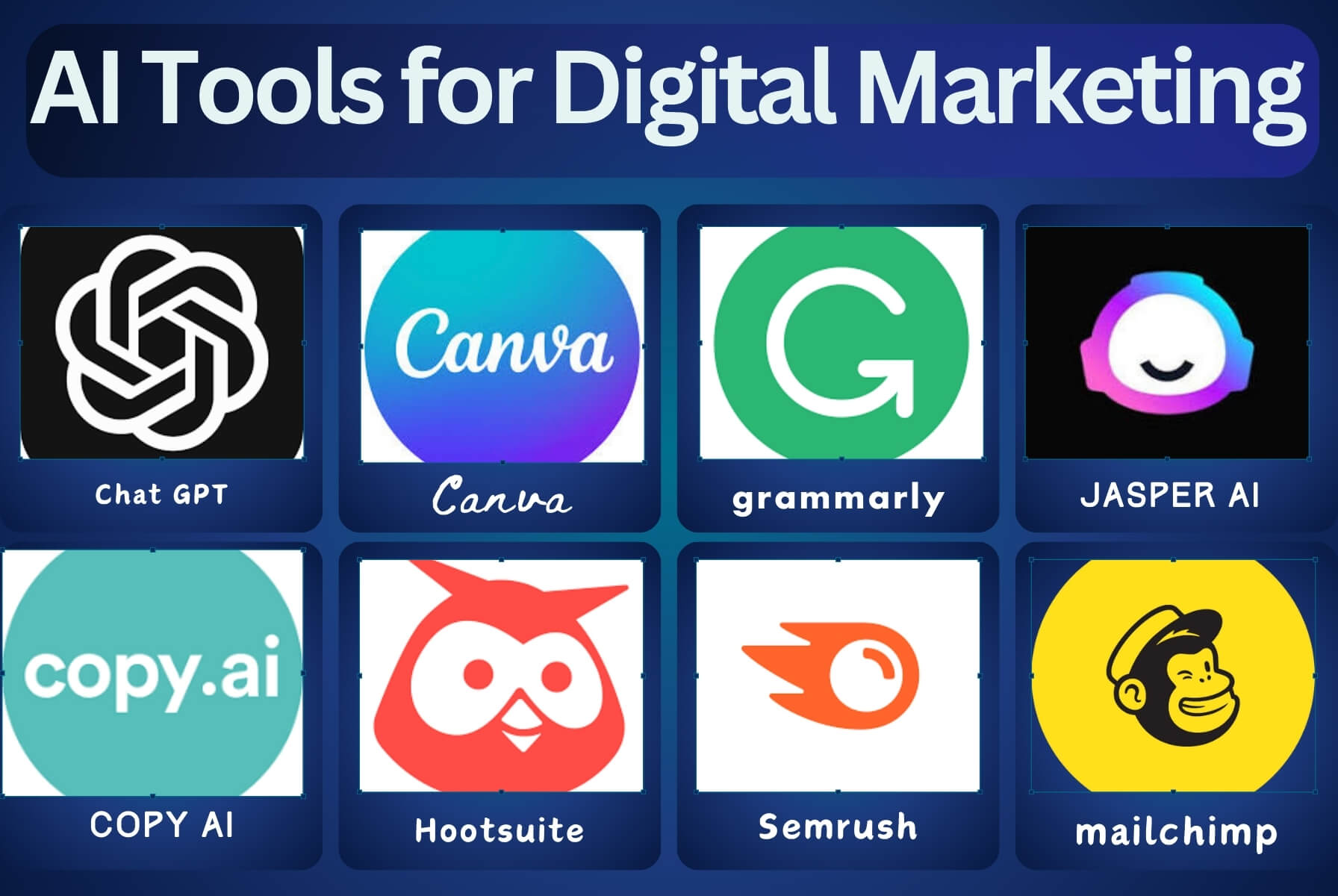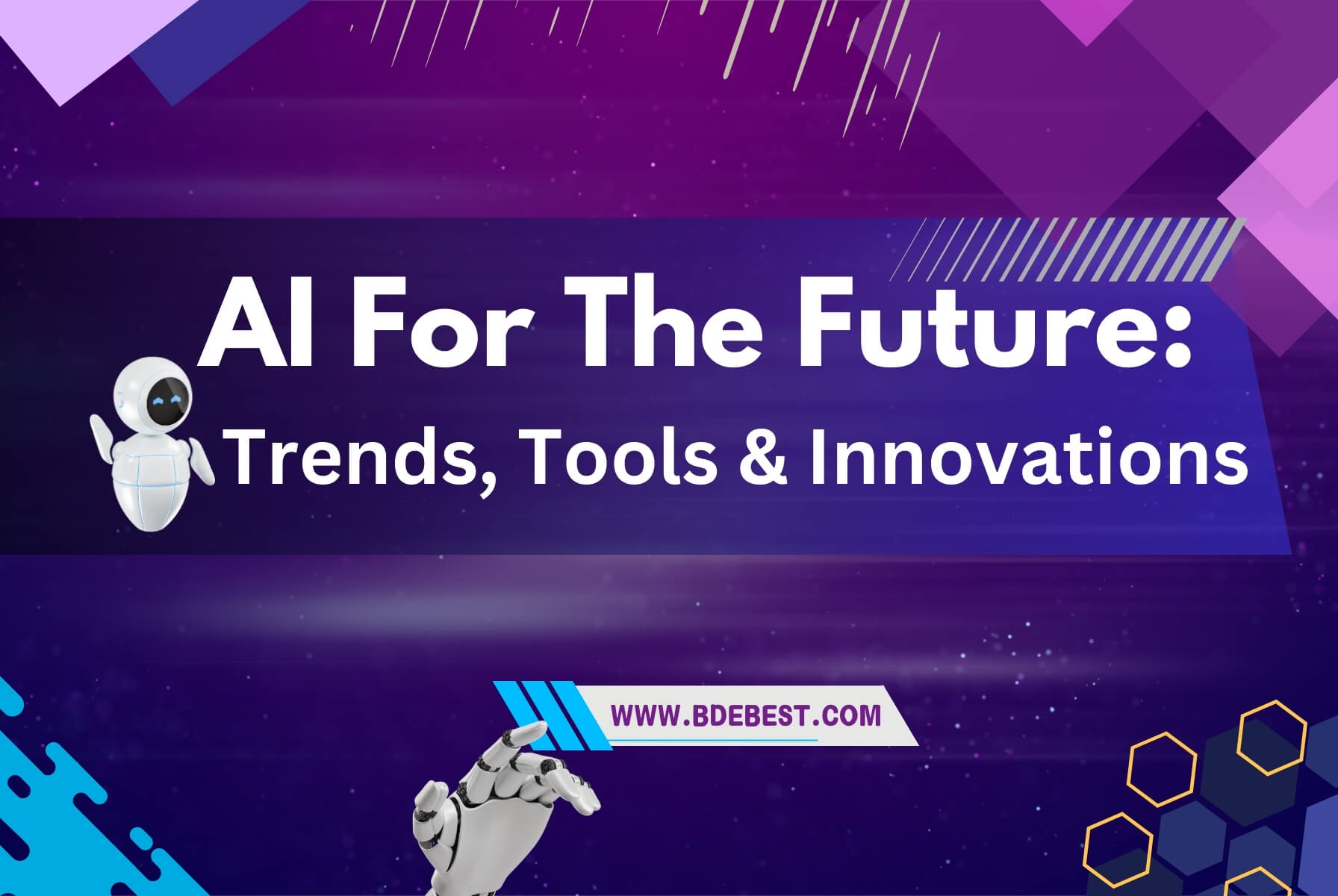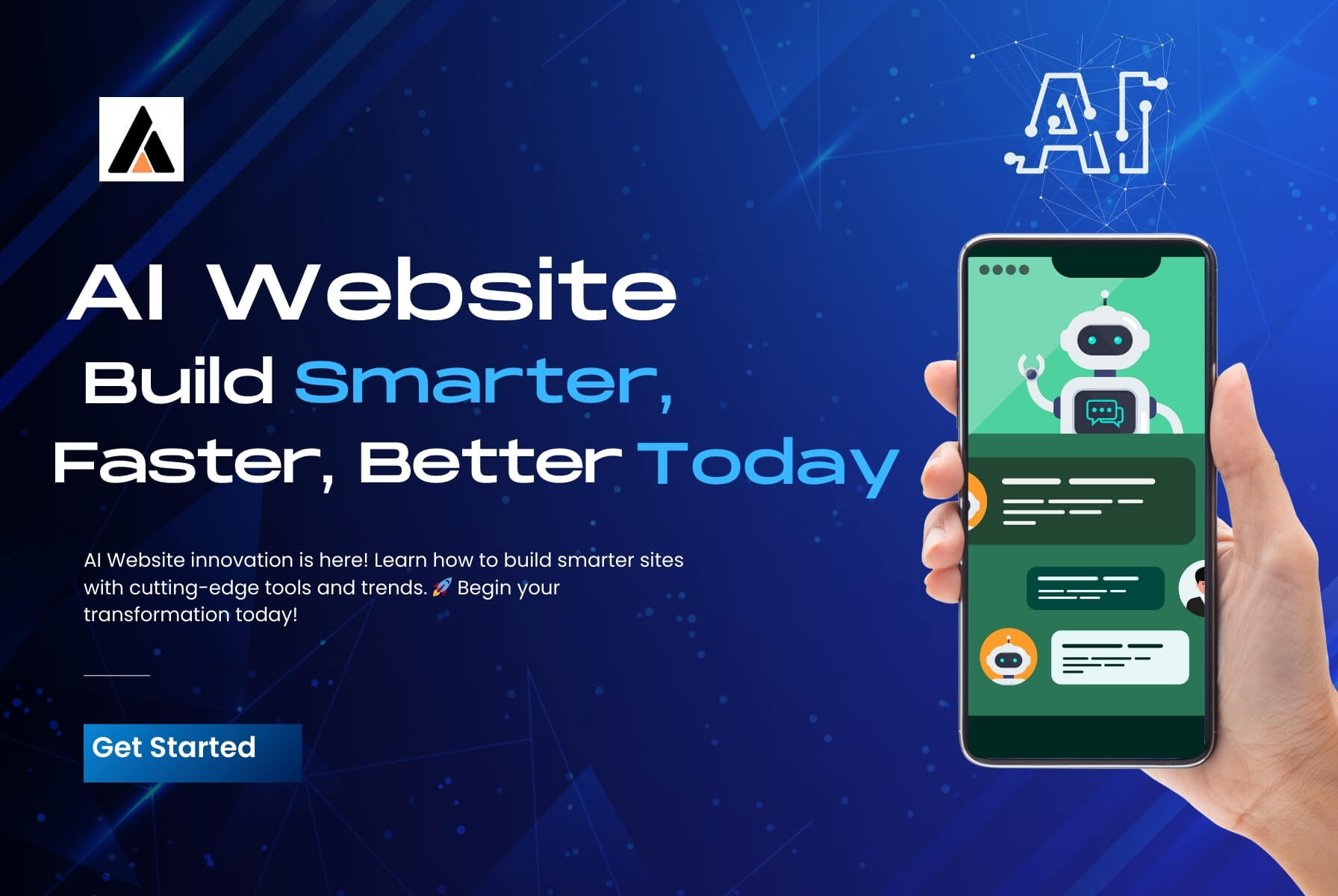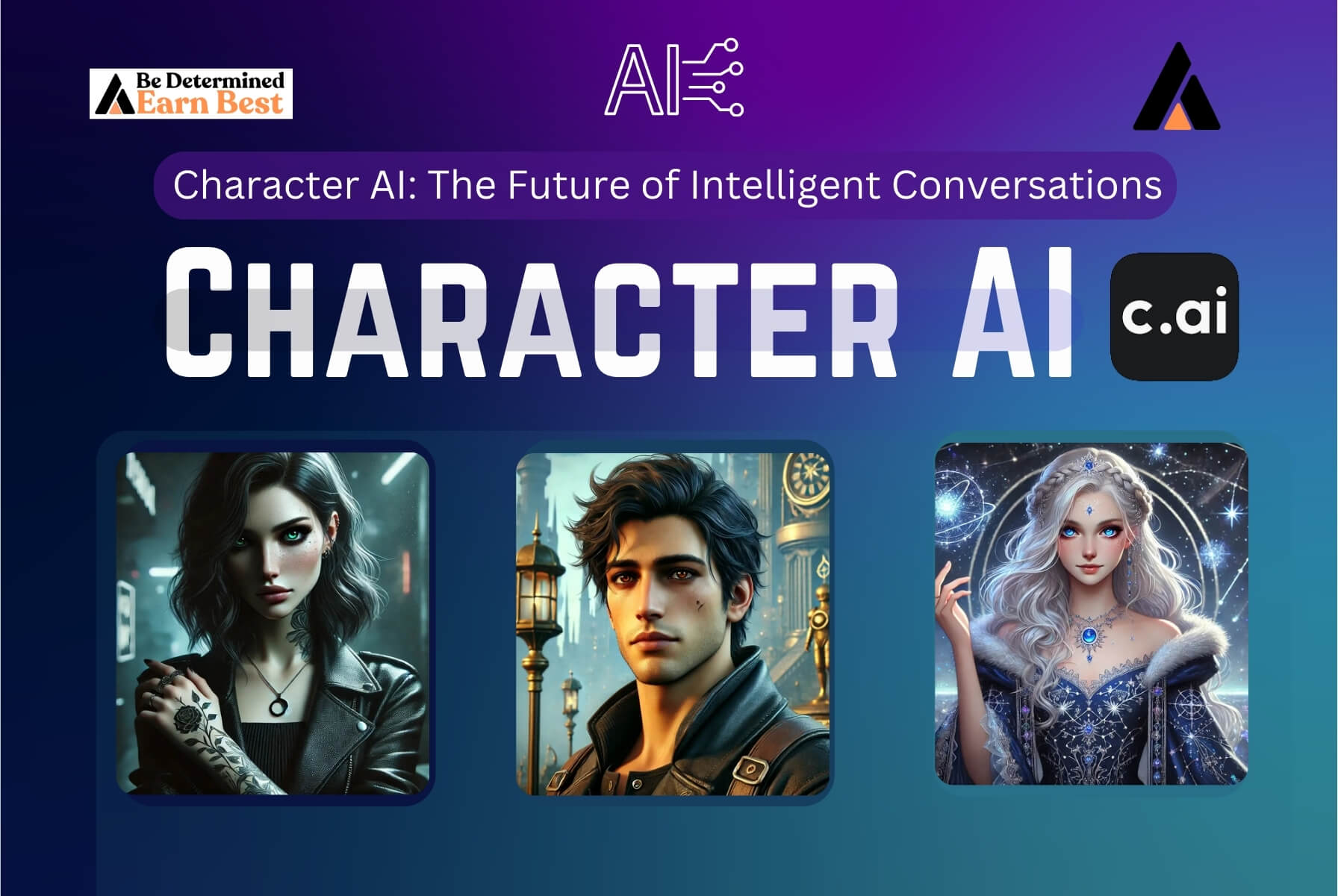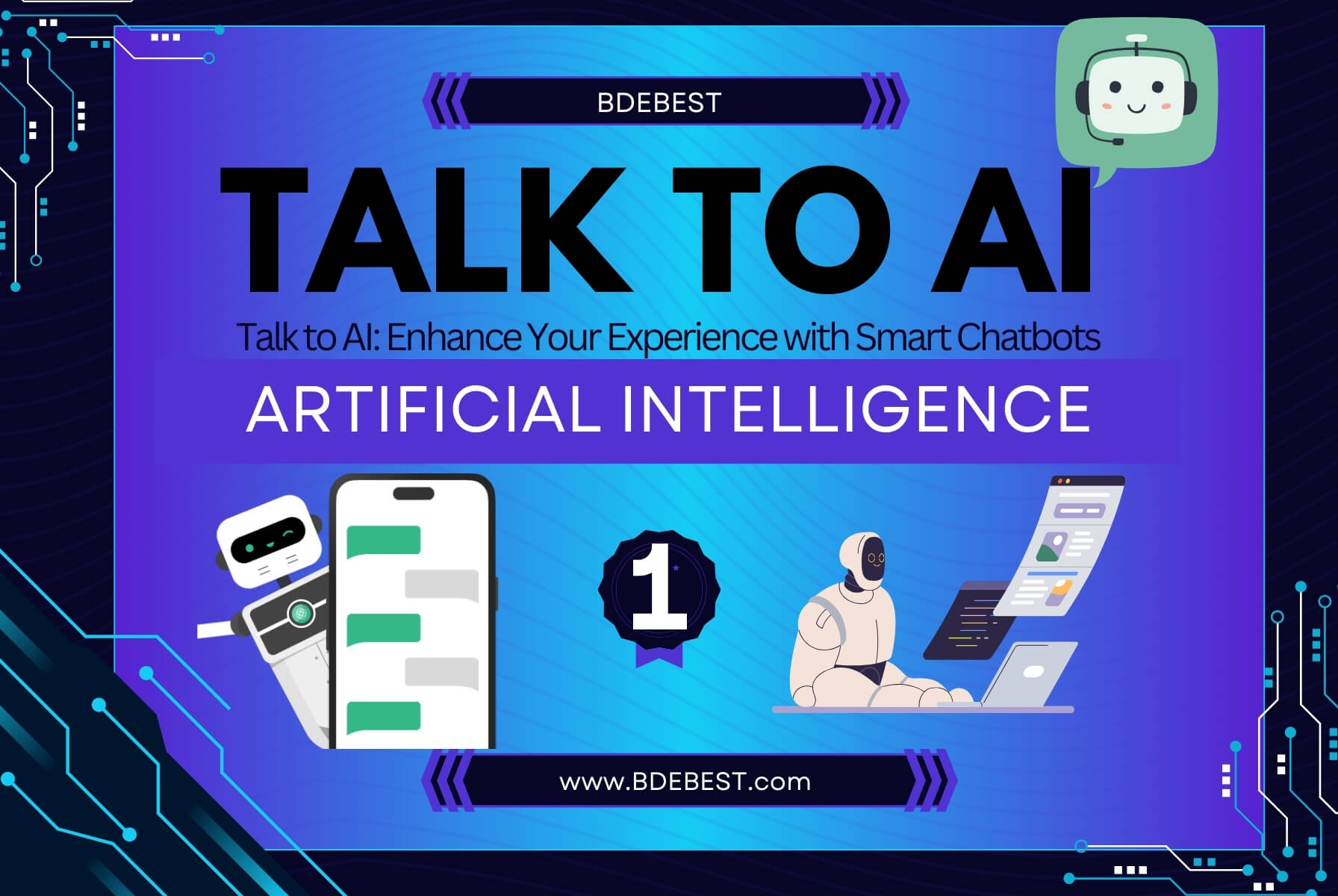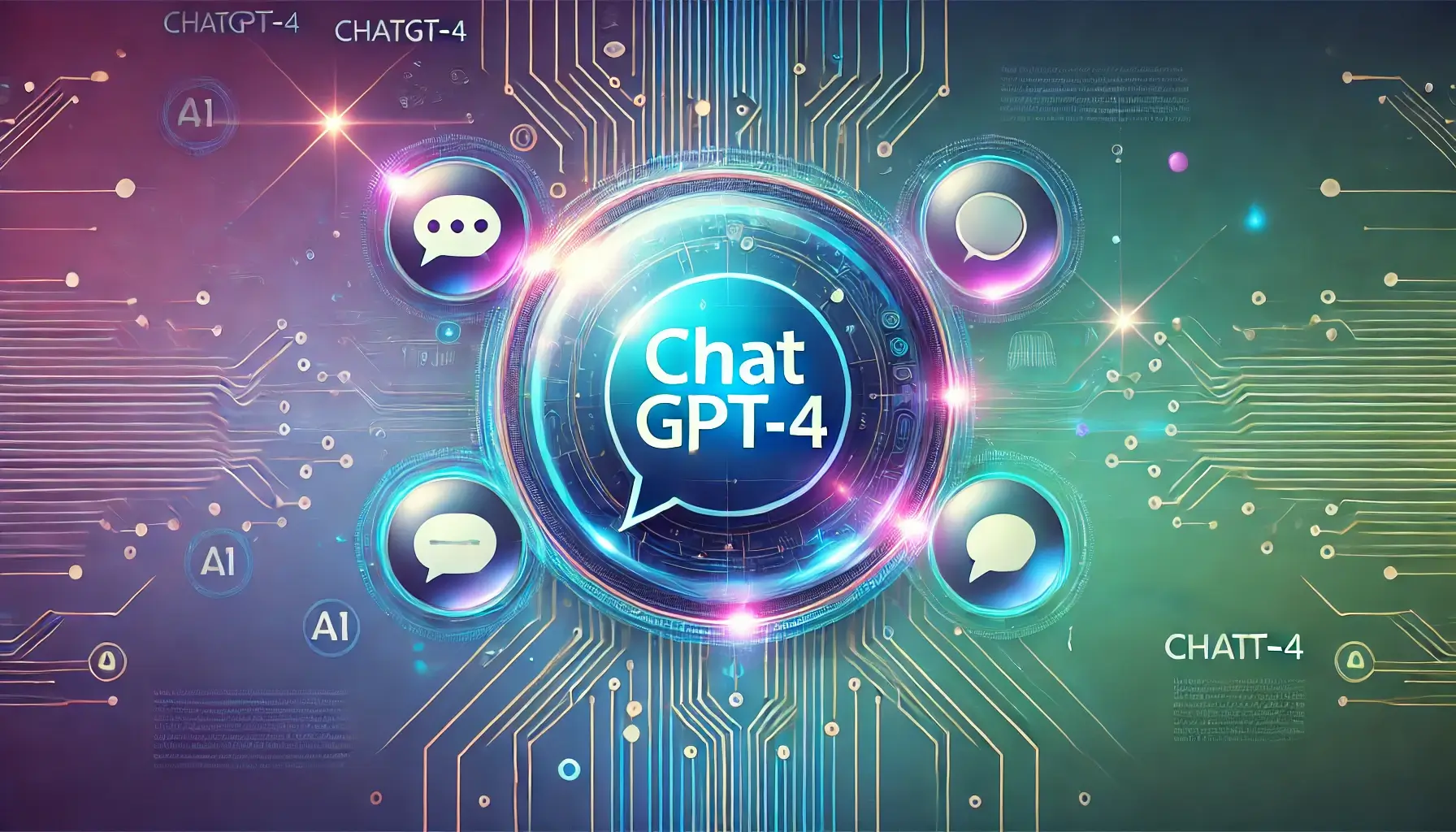The rapid evolution of artificial intelligence (AI) has revolutionized countless industries, and digital marketing is no exception. From streamlining workflows to delivering data-driven decisions, AI tools for digital marketing are empowering businesses to stay competitive in a dynamic landscape. Whether you’re a seasoned marketer or just starting, leveraging AI technology can significantly enhance your campaigns, improve scalability, and drive measurable results.
In this article, we’ll explore the core features of AI tools, their growing importance, and the best options available today. Along the way, we’ll discuss free AI tools for digital marketing, the benefits of using an AI digital marketing platform, and how to choose the right tools for your business.
What Are AI Tools for Digital Marketing?
Defining AI Tools in Digital Marketing
AI tools for digital marketing are software solutions powered by machine learning, natural language processing, and predictive analytics. These tools are designed to automate repetitive tasks, analyze large datasets, and provide actionable insights to marketers. By leveraging AI, businesses can optimize their campaigns for better results with less effort.
Key Features of AI Digital Marketing Tools
- Automation
- AI automates time-consuming tasks such as scheduling social media posts, personalizing email campaigns, and optimizing ads.
- Example: Platforms like Mailchimp use AI to recommend optimal send times for email campaigns.
- Personalization
- AI empowers marketers to deliver hyper-personalized campaigns by leveraging insights into customer preferences and behaviors.
- Example: AI-driven tools can tailor product recommendations or suggest content that resonates with individual users.
- Predictive Analytics
- With predictive analytics, marketers can forecast trends, customer behavior, and campaign performance.
- Example: Tools like HubSpot’s AI features predict which leads are most likely to convert.
- Real-Time Insights
- AI tools provide instant analysis of campaign performance, enabling real-time adjustments.
- Example: Google Ads’ AI features offer recommendations to improve ad quality and targeting.
The Growing Importance of AI Digital Marketing Platforms
AI digital marketing platforms combine multiple functionalities, such as SEO, social media management, and customer engagement, into a single ecosystem. These platforms not only save time but also ensure a cohesive marketing strategy. Businesses using the best AI tools for digital marketing often report higher ROI and improved efficiency compared to traditional methods.
Why AI Tools Are Essential in Modern Digital Marketing
The digital marketing landscape is increasingly complex, with customers demanding personalized experiences and businesses competing for attention in saturated markets. Here’s why AI tools have become indispensable:
Enhanced Efficiency
By automating repetitive and time-consuming tasks, AI tools allow marketers to prioritize strategic planning and creative initiatives.
Data-Driven Decisions
With AI analyzing vast amounts of data, marketers can make informed decisions based on real-time insights and historical trends.
Scalability
Whether you’re running a small business or managing an enterprise, AI tools can scale marketing efforts to meet growing demands.
Benefits of AI Tools for Digital Marketing
1. Enhanced Audience Targeting and Segmentation
Advanced AI tools effectively segment audiences by analyzing detailed customer data, such as behaviors, preferences, and demographics. By targeting the right audience with tailored messages, businesses can significantly improve engagement and conversion rates.
- Example: Tools like Facebook Ads Manager use AI to suggest audience segments for ad campaigns based on past performance and user behavior.
2. Automating Repetitive Tasks: Time and Cost Savings
Manual tasks like scheduling social media posts, responding to inquiries, and generating reports can consume a marketer’s time. AI automates these processes, enabling marketers to focus on strategy and creativity.
- Example: AI-powered platforms like Buffer and Hootsuite automate social media scheduling, saving time and ensuring consistent posting.
- Benefits: Reduced operational costs and improved productivity.
3. Improved Content Creation and Optimization
AI content creation tools can generate blog posts, ad copy, and social media captions tailored to your audience. They also optimize existing content by suggesting better keywords, headlines, and structure.
- Example: Tools like Jasper.ai and Copy.ai help marketers create engaging content in minutes.
- SEO Boost: AI tools enhance keyword research and content optimization to improve search engine rankings.
4. Real-Time Data Analysis for Actionable Insights
AI tools for digital marketing provide real-time insights into campaign performance, allowing marketers to adjust their strategies on the fly. This agility helps businesses stay ahead of the competition and respond to market changes effectively.
- Example: Google Analytics leverages AI to highlight trends, anomalies, and opportunities for optimization.
5. Boosting ROI with Predictive Analytics and AI-Based Recommendations
AI’s ability to analyze past performance and predict future trends helps businesses allocate resources more effectively. Predictive analytics provides insights into customer behavior, enabling smarter investments in campaigns.
- Example: AI-driven platforms like HubSpot use predictive models to score leads and recommend actions to improve ROI.
Categories of AI Tools for Digital Marketing
1. AI-Powered Content Creation Tools
These tools simplify the content creation process by generating high-quality blogs, ad copy, product descriptions, and more. They save time and ensure consistency across marketing channels.
- Examples:
- Use Case: Creating engaging content quickly while maintaining a professional tone.
2. AI-Driven SEO Tools
SEO is essential for driving organic traffic. AI-driven tools enhance keyword research, analyze backlinks, and optimize on-page elements for better search engine rankings.
- Examples:
- Use Case: Improving your website’s visibility on search engines.
3. AI Social Media Tools
Social media tools powered by AI automate posting schedules, analyze engagement metrics, and provide insights into audience sentiment. They also assist with social listening to monitor brand mentions and trends.
- Examples:
- Hootsuite: Automates posting and analyzes social media performance.
- Sprout Social: Tracks social media sentiment and engagement.
- Use Case: Managing multiple social media accounts effectively.
4. AI Tools for Paid Advertising
AI optimizes ad campaigns through automated bidding, audience targeting, and performance tracking. These tools analyze data to deliver ads to the right audience at the right time.
- Examples:
- Adzooma: Simplifies ad management and improves ROI.
- Google Ads AI Capabilities: Streamlines bid automation and offers recommendations for enhancing ads.
- Use Case: Maximizing the performance of paid advertising campaigns.
5. AI Email Marketing Tools
Email marketing continues to be one of the most impactful methods for engaging audiences in digital marketing. AI tools help with personalizing email content, optimizing send times, and predicting customer actions.
- Examples:
- Mailchimp: Uses AI to recommend optimal send times and subject lines.
- ActiveCampaign: Predicts customer behavior to improve email targeting.
- Use Case: Creating personalized email campaigns that drive higher open and click-through rates.
6. AI Customer Service Tools
AI-powered chatbots and virtual assistants provide 24/7 customer support, handling inquiries, resolving issues, and even upselling products.
- Examples:
- Use Case: Enhancing customer satisfaction and reducing response times.
Best AI Tools for Digital Marketing in 2025
The following AI tools are transforming digital marketing, catering to various needs like content creation, SEO, social media management, advertising, email marketing, and customer engagement.
1. Content Creation Tools
Producing top-tier content is a cornerstone of success in digital marketing strategies. AI-powered platforms simplify the content creation process, enhancing efficiency and consistency.
- ChatGPT: Perfect for generating conversational and engaging content, including blog posts, ad copy, and social media captions.
- Jasper.ai: Known for its ability to create marketing copy tailored to specific audiences, from product descriptions to sales emails.
- Copy.ai: Ideal for creating short-form content like headlines, taglines, and email campaigns.
Use Case: Marketers can use these tools to produce compelling, SEO-friendly content quickly, reducing the time spent on manual writing.
2. SEO Tools
Search engine optimization remains a cornerstone of digital marketing. These AI-powered tools enhance keyword research, on-page optimization, and competitor analysis.
- Semrush: Offers robust features for keyword analysis, backlink audits, and SEO reporting.
- SurferSEO: Helps marketers optimize content with real-time recommendations for keywords and readability.
- Clearscope: Focuses on improving content relevance and SEO scores by analyzing top-ranking pages.
Use Case: Use these tools to boost your website’s visibility and attract more organic traffic.
3. Social Media Management Tools
Social media platforms are integral to digital marketing strategies. These tools simplify the process of managing and optimizing your presence across platforms.
- Hootsuite: Automates scheduling and provides AI-driven insights into audience engagement.
- Sprinklr: Offers advanced analytics and AI-powered social listening to monitor trends and brand sentiment.
- Buffer: Combines AI-enhanced scheduling with analytics to improve post-performance.
Use Case: Manage multiple social media accounts efficiently and maximize audience engagement.
4. Advertising Tools
AI tools are revolutionizing paid advertising by optimizing bidding strategies and improving audience targeting.
- Adzooma: A user-friendly platform for managing Google, Facebook, and Microsoft ads with AI-based recommendations.
- Adext AI: Focuses on audience targeting to improve campaign performance and ROI.
- Google Ads AI Features: Includes automated bidding and suggestions for ad optimization.
Use Case: Run highly targeted advertising campaigns that deliver measurable results.
5. Email Marketing Tools
Email marketing remains one of the most effective ways to engage with customers, and AI tools take it to the next level.
- Mailchimp: Uses AI to recommend optimal send times and create personalized email content.
- HubSpot AI: Provides insights into customer behavior and automates segmentation.
- ActiveCampaign: Combines predictive analytics with AI-driven recommendations for better email performance.
Use Case: Personalize email campaigns and increase open and click-through rates using AI.
6. Customer Engagement and Chatbots
AI-powered chatbots are transforming customer service by providing instant responses and seamless support.
- Drift: Combines AI chatbots with conversational marketing tools to enhance lead generation.
- Intercom: Offers AI-driven support and messaging tools for personalized customer interactions.
- ManyChat: Focuses on AI-powered communication through social media platforms like Facebook Messenger.
Use Case: Improve customer satisfaction and reduce response times with 24/7 AI support.
Free AI Tools for Digital Marketing
For businesses on a budget, free AI tools for digital marketing provide a great starting point. While they may have limitations, they still offer valuable features.
1. Google Analytics (with AI-Enhanced Features)
- What It Does: Tracks website traffic and provides AI-driven insights into user behavior.
- Use Case: Identify trends and optimize your website’s performance.
2. Canva’s AI-Based Design Tools
- What It Does: Helps create stunning graphics with AI-powered suggestions and templates.
- Use Case: Design professional-quality visuals for social media and ads without needing a graphic designer.
3. Grammarly for AI-Powered Content Optimization
- What It Does: Enhances written content by checking for grammar, tone, and readability.
- Use Case: Ensure content is polished and professional before publishing.
4. Freemium Models of Popular Tools
- HubSpot: Offers free CRM tools with AI-driven marketing features.
- Buffer: Provides a freemium option for social media scheduling with limited features.
- Copy.ai: Allows users to generate content with basic functionality for free.
Use Case: Experiment with premium tools at no cost before committing to paid plans.
Selecting the Right AI Tool for Digital Marketing
Selecting the right tool depends on your business requirements, budget, and long-term goals. Consider these critical factors to make an informed decision:
1. Align with Business Goals and Specific Needs
Start by identifying what you want to achieve. Are you looking to automate email marketing, optimize content, or analyze customer data? The best AI tool for digital marketing will align with your objectives, whether it’s boosting customer engagement, improving SEO, or driving ROI.
- Example: For enhanced content creation, tools like Jasper.ai and Copy.ai are excellent. If lead generation is your focus, consider an AI digital marketing platform like HubSpot AI.
2. Prioritize Ease of Use and Scalability
Ensure the tool is intuitive and doesn’t require extensive technical expertise. Additionally, as your business grows, the AI tool should scale seamlessly to accommodate increased workloads or expanded features.
- Tip: Many AI digital marketing tools offer free trials or demo versions, allowing you to test usability before committing.
3. Look for Integration with Existing Tools and Platforms
The ability to integrate with your current systems, such as CRM software, email platforms, or social media tools, is crucial. Seamless integration ensures that existing workflows remain efficient and free from unnecessary interruptions.
- Example: AI tools like Mailchimp and Hootsuite integrate effortlessly with other platforms, making them versatile choices.
4. Evaluate Budget Constraints and ROI Potential
Consider both the initial investment and the long-term value the tool can deliver. While premium tools offer advanced features, many free AI tools for digital marketing provide robust capabilities for smaller budgets.
- Pro Tip: Tools like Google Analytics and Canva’s AI-based design tools are free or have affordable tiers, making them great options for startups.
5. Assess Customer Support and Training Resources
Robust customer support and training resources ensure a smooth onboarding process and help you maximize the tool’s potential. Look for tools with tutorials, FAQs, and responsive customer service.
- Recommendation: Platforms like HubSpot AI are renowned for their comprehensive training programs and user support.
AI Trends Shaping the Future of Digital Marketing
The world of digital marketing is evolving rapidly, driven by advancements in AI. Here are the top trends to watch:
1. Voice Search Optimization and Conversational AI
The growing use of smart speakers and virtual assistants makes voice search optimization increasingly important. Conversational AI, including chatbots, allows businesses to engage customers naturally and efficiently.
- Example: AI tools like Drift and ManyChat use conversational AI to enhance customer interactions.
2. Hyper-Personalization in Marketing Campaigns
AI enables marketers to create highly personalized campaigns by analyzing individual customer behaviors, preferences, and purchase histories.
- Use Case: Platforms like ActiveCampaign and Mailchimp utilize AI to deliver personalized email recommendations, improving engagement rates.
3. Predictive Analytics for Customer Behavior Forecasting
AI tools can predict future trends and customer actions, helping businesses make proactive decisions. Predictive analytics is particularly useful for campaign planning and resource allocation.
- Example: HubSpot AI provides insights into lead scoring and customer lifecycle predictions.
4. Integration of AI with AR/VR for Immersive Experiences
Combining AI with augmented and virtual reality is opening new avenues for immersive marketing. Brands can create interactive experiences to engage customers on a deeper level.
- Future Potential: AI-driven AR/VR platforms could redefine product demonstrations and virtual shopping.
5. The Role of Ethical AI and Data Privacy Concerns
As AI technologies expand, addressing ethical concerns and complying with data privacy laws has become a top priority. Businesses must ensure their tools comply with standards like GDPR while maintaining transparency in data usage.
- Tip: Choose AI tools from providers committed to ethical practices and data security.
Challenges of Using AI Tools in Digital Marketing
Despite the significant advantages, incorporating AI tools into digital marketing strategies also presents unique challenges. Understanding these obstacles can help you overcome them effectively.
1. High Initial Costs and Implementation Challenges
Some AI tools require significant investment and technical expertise for implementation, which can be a barrier for smaller businesses.
- Solution: Start with free AI tools for digital marketing or affordable solutions with scalable plans.
2. Over-Reliance on AI: Balancing Automation with Human Creativity
While AI automates many tasks, over-reliance can stifle creativity and lead to generic campaigns.
- Solution: Use AI for repetitive tasks and data analysis while keeping creative aspects in human hands.
3. Data Privacy Regulations and Compliance Issues
Navigating data privacy laws like GDPR and CCPA can be challenging when using AI-powered platforms that process customer data.
- Solution: Partner with AI providers that prioritize compliance and offer clear guidelines on data security.
Real-Life Success Stories
1. Enhanced Customer Engagement: Starbucks and Predictive Analytics
Starbucks implemented AI-powered predictive analytics to personalize customer interactions. By analyzing purchase history and preferences through their loyalty app, Starbucks tailored offers and recommendations to individual customers.
- Result: Increased customer retention and higher engagement rates through relevant promotions.
- AI Tools Used: Custom-built AI models and CRM platforms.
2. Increased ROI in Ad Campaigns: BMW and Programmatic Advertising
BMW leveraged AI in programmatic advertising to optimize its ad campaigns. By using AI tools to identify high-value audience segments and adjust bids in real time, BMW significantly reduced ad spend while improving conversions.
- Result: A 30% boost in campaign ROI and improved targeting efficiency.
- AI Tools Used: Adzooma, Google Ads’ AI features.
3. Improved Brand Visibility: HubSpot and AI-Driven SEO
HubSpot incorporated AI tools like Clearscope and Semrush into its content marketing strategy. These tools helped optimize blog content for search engines, ensuring it ranked for relevant keywords.
- Result: A noticeable increase in organic traffic and higher rankings for competitive terms.
- AI Tools Used: Semrush, Clearscope, custom analytics platforms.
Comprehensive FAQ Section
1. Which AI Tools Are Most Effective for Digital Marketing?
The best tools cater to specific marketing needs.
- Content Creation: ChatGPT, Jasper.ai, Copy.ai.
- SEO: Semrush, Ahrefs, Clearscope.
- Social Media: Hootsuite, Buffer, Sprinklr.
- Email Marketing: Mailchimp, ActiveCampaign, HubSpot AI.
2. Are There Free AI Tools for Digital Marketing?
Yes, several free tools offer powerful features:
- Google Analytics: AI-enhanced insights into website performance.
- Canva’s AI-Based Design Tools: For creating professional visuals.
- Grammarly: Content optimization.
- Freemium models like HubSpot and Buffer.
3. How Do AI Tools Enhance Digital Marketing Efforts?
AI tools automate repetitive tasks, provide data-driven insights, and personalize customer interactions. They also improve campaign efficiency and optimize performance in real time.
4. Which AI Tool Is the Best Choice for SEO Optimization?
- Semrush: Comprehensive SEO suite for keyword research, backlinks, and technical audits.
- Ahrefs: Focused on backlinks and competitive analysis.
- Clearscope: Enhances content relevance with keyword suggestions.
5. Can Small Businesses Afford AI Tools for Digital Marketing?
Absolutely. Many tools offer affordable or free plans:
- Freemium options like HubSpot and Buffer.
- Free tools such as Google Analytics and Canva.
These options are ideal for small businesses with limited budgets.
6. What Are AI-Powered Platforms for Social Media Management?
AI-enhanced platforms simplify social media management:
- Hootsuite: Automates scheduling and provides analytics.
- Buffer: Freemium scheduling with engagement insights.
- Sprinklr: Advanced social listening and audience analysis.
7. How Do I Integrate AI Tools into My Digital Marketing Strategy?
- Identify specific needs (content creation, ad optimization, etc.).
- Choose tools that align with your goals and existing platforms.
- Start with free or trial versions to evaluate usability.
- Gradually scale and automate tasks for better efficiency.
8. Are There Risks in Using AI for Digital Marketing?
While AI offers numerous benefits, challenges include:
- Data Security: Ensure tools comply with regulations like GDPR.
- Over-Automation: Balance AI usage with human creativity.
- Costs: Start with free or budget-friendly options to minimize financial risk.
9. What’s the Future of AI in Digital Marketing?
- Enhanced hyper-personalization and predictive analytics.
- Greater integration with AR/VR for immersive campaigns.
- Ongoing progress in ethical AI development and adherence to data privacy standards continues to shape the future.
The success stories of companies like Starbucks, BMW, and HubSpot highlight the immense potential of AI tools for digital marketing. From driving customer engagement to improving brand visibility, AI is transforming how businesses operate.
Whether you’re a small business exploring free AI tools for digital marketing or an enterprise adopting the best AI tools for digital marketing, the time to embrace this technology is now. Start leveraging the power of AI tools and elevate your marketing strategy to new heights.

